03 Sep First Quarter 2015
Willis Sinclair Homes
“The Lowcountry’s Premier Custom Home Builder”
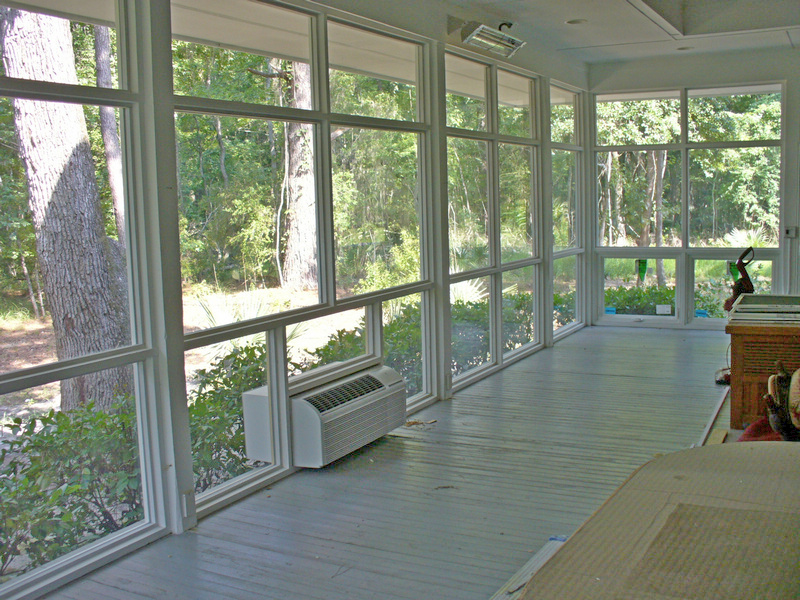
You can enjoy your porch all year without gnats and pollen.
24 Gabriel Road
Lodge, South Carolina 29082
843 846 2500

First Quarter 2015
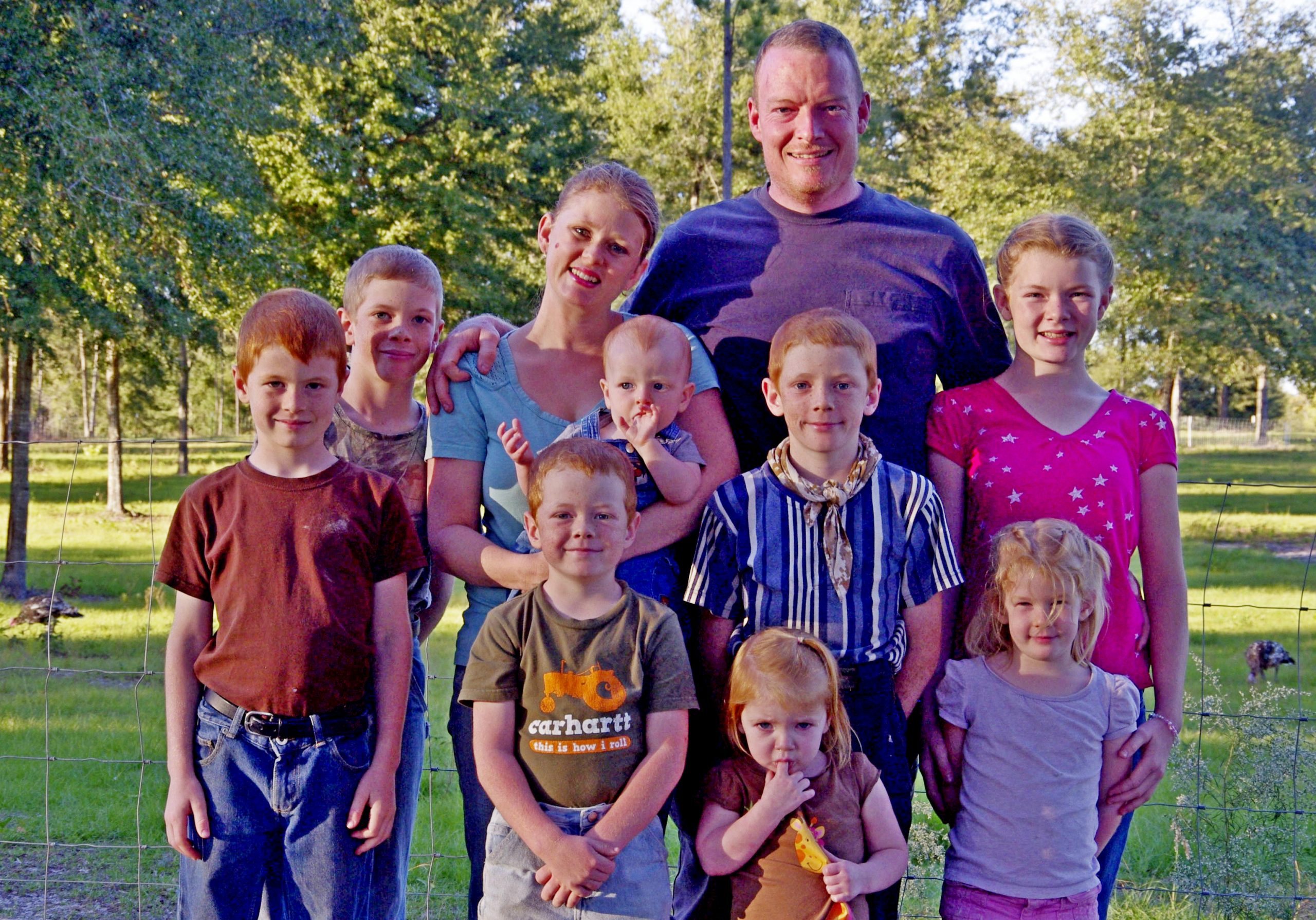
What is missing from this photo?
This is Bill and Liz Burdick and their eight children. Bill is Willis’ brother in law and Bill and Kandy’s son. Bill and his family live on a 20 acre farm in North Florida.
Oh, yes, the missing item … It is child number nine, but he or she is on the way. ETA October 26.
This will be Bill & Kandy’s 31st grandchild.
 From the desk
From the desk
of Willis …
We are really busy here at Willis Sinclair. Two houses are under construction (one will be finished by the time you are reading this) and we have a number of smaller, but very important projects in the queue.
One of the more popular projects here has been closing in screened porches. A screened porch seems like a good idea, but two things may cause you to have second thoughts: ‛no see ums’ (gnats) and pollen.
Screens are effective keeping mosquitoes out, but the sand gnats (‛no see ums’) can get through most screen. Screens with a fine mesh (20×20 per inch) will also restrict breezes.
Pollen is another problem. Unfortunately, the pollen season has two peaks: spring and fall – when the temperatures are pleasant for sitting on your porch. Screens don’t slow pollen down.
A glassed in porch will prevent gnats and pollen and you can still retain fresh air if you incorporate opening windows. You can also condition the porch with through the wall heat pumps to make your porch a year around room.
We would be happy to price closing in your porch. Wouldn’t it be nice to sit on your porch chairs without getting yellow pollen stripes on your clothes and bites?
Call us. We can help.
Willis
President
Willis Sinclair, Inc.
843 846 2500
Counter Tops
Counter tops are available in many different materials and colors. They can brighten a kitchen and give it a new look. Here is a quick rundown on the choices you have.
Solid Surface, commonly known as Corian®, is an acrylic material that is very versatile. It can be seamed invisibly.
Solid surfaces will not tolerate heat as well as some other surfaces. The manufacturers don’t recommend taking a hot pot or pan off the stove and setting it on a solid surface counter top.
Solid surfaces are nonporous, so stains and bacteria are not an issue. On the other hand, it is softer than other counter top materials, so it can be scratched.
There are many, many different colors and patterns available. Sink bowls can even be made of this material. Near invisible repairs are possible if sections have been damaged by scratching or burning.
The cost runs from $35 to $75 depending on color and pattern. Solid surface counter tops are suitable for residential and commercial applications.
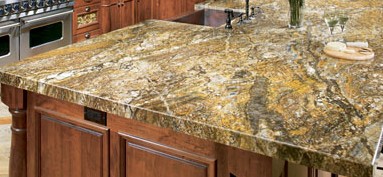
A granite counter top
Granite counter tops are a natural stone which is mined and cut into slabs. It is then polished. Clearly, no two granite counter tops are identical.
Granite is typically considered to be a “high end” product.
It is highly scratch resistant and it will not be burned by hot pots. Granite, if damaged, is very difficult to repair.
Granite, like many natural stones is porous and requires annual sealing. Some lighter colored granites may stain even with a good sealer. Granite cannot be used in commercial food prep areas or in the health care industry because of its porosity.
Granite is typically $70 to $100 per square foot.
Quartz is commonly known as Cambria or Zodiaq, both trade names. It is a blend of approximately 93% quartz and 7% polyester resin that is pressed into slabs.
Quartz is nonporous so bacteria and stains will not be a problem. It is also very dense so it is impact and scratch resistant. It can be burned by hot pans or appliances. Repairing burned surfaces is difficult and not always successful.
Many colors and patterns are available. If your counter top is too large for a single slab, you will have seams which are not invisible.
Quartz is an excellent choice for both residential and commercial applications.
Quartz is priced similar to Granite: $70 to $100 per square foot, typically.
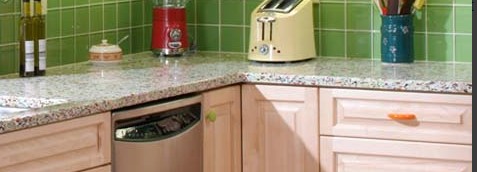
A concrete counter top
Concrete counter tops can be either cast in place or precast. Concrete tops can be beautiful – forget the ‛concrete block’ look.
Cast in place tops can have integral sinks, drain boards and other features cast directly in them. They can also have many looks: exposed aggregate (rocks), hones “salt and pepper”, troweled, acid stained, to name a few.
Precast slabs will have joints and many other features like granite has. Cast in place tops can be made in any shape or size.
Concrete tops are porous. Unsealed concrete tops are susceptible to stains, water spots and bacteria. Sealing is a must to maintain its original appearance.
Concrete tops can crack and the quality of the repair depends highly on the skill of the repairman.
The price of concrete counter tops is similar to natural stone: $70 to $100 typically. Integral sinks can add significantly to the price.
Marble is a natural stone. It is primarily calcium carbonate. Marble is often found on fireplace surrounds, vanity tops, shower walls as well as kitchen counter tops. It is a heat resistant material.
Marble can be shiny or have a honed appearance depending on how it is finished.
Marble is softer than granite and can be easily scratched or etched with acids (lemon juice, vinegar, etc.). Marble can be polished to remove dulled spots.
Since marble is porous, it needs to be sealed. Even with sealing the bacteria issue still exists. Kitchen use may not be the best use of marble. If it is damaged, repairs are not invisible.
Marble is about $60 to $90 per square foot.
Soapstone is a quarried stone. It is not as hard as granite or marble. Typically, it is quarried in smaller slabs than granite or marble, so you will have more seams.
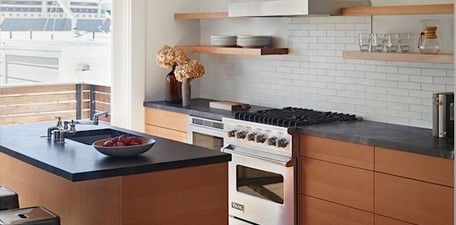
A soapstone counter top
Soapstone is dense and nonporous, so it does not stain. It can stand up to acids, so wine, juices or vinegar will not harm it. This is one reason it is popular in science labs. Soapstone does not need to be sealed.
Soapstone is also heat resistant. It is about the same price as granite or marble. Soapstone is dark gray. Sometimes flecks of other minerals will be in the soapstone.
Tile counter tops consist of ceramic (usually) tile laid over a plywood top. They are becoming popular. Tile comes in many colors, patterns and shapes.
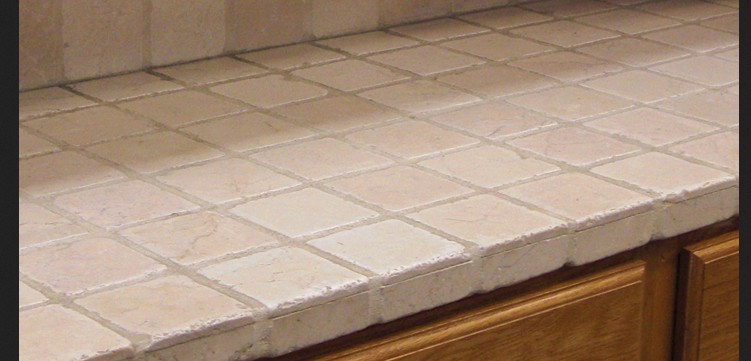
A tile counter top
Tile counter tops can withstand heat. While the tile is nonporous, grout (filler between tiles) is often porous, so must be sealed. Tile counter tops are often difficult to repair and matching tile and grout can be a problem.
Prices vary, but generally run from $15 to $40 per square foot.
Wood and other materials can be used as counter tops. If you have something special in mind, give us a call, we’ll help you understand the pros and cons as well as the approximate price.
Willis Sinclair Homes – the premier home builder in the Lowcountry. Call us. We can help.
Willis Sinclair Homes
We will never knowingly disappoint you!
Call Us

843 846 2500




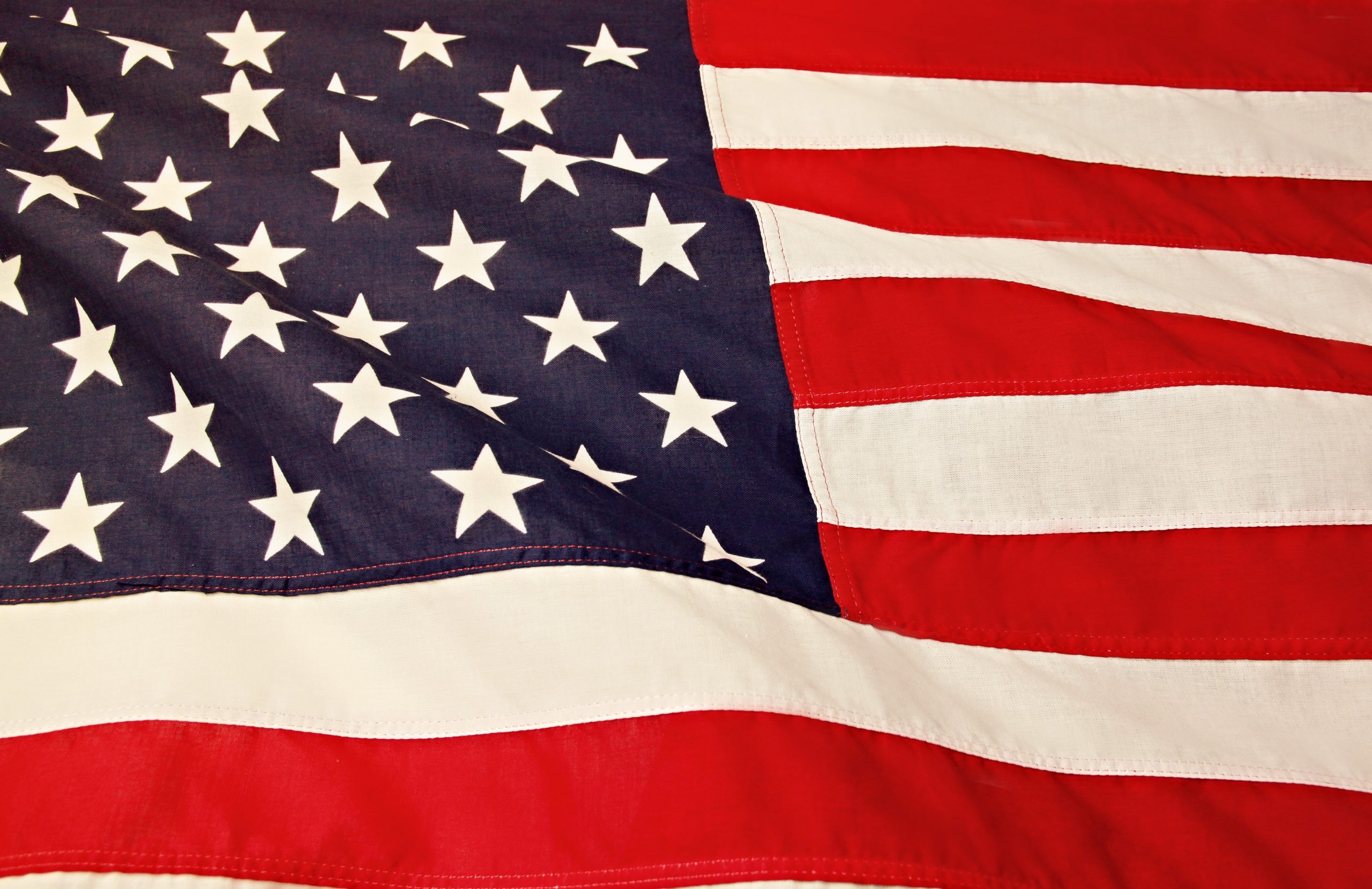
No Comments